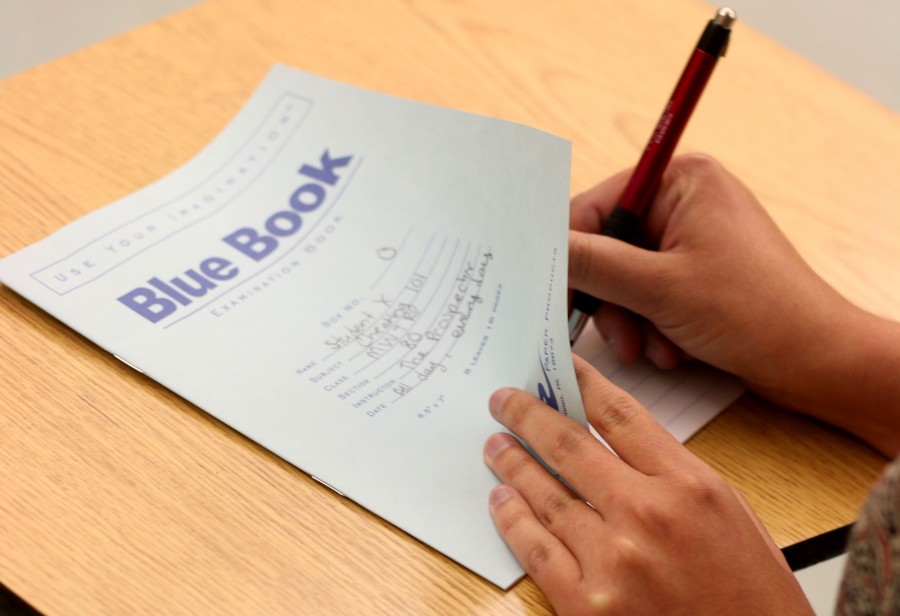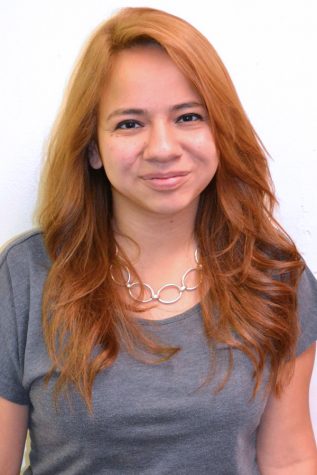Scholastic dishonesty cases at UTEP have increased over the last three years.
During the 2013-2014 school year, the university reported 189 cases of academic dishonesty, which includes cheating, plagiarism and collusion (unauthorized collaboration for any school assignments.)
In 2014-2015, the number of cases increased to 225.
This school year, dishonesty cases dramatically increased to 352 cases of scholastic dishonesty were reported. Sixty-five cases were for cheating, 229 for plagiarism and 58 for collusion.
“It’s not surprising,” said Italia Solis, freshmen multimedia journalism major. “They’re lazy, there’s a lot of stress going on and it’s overpowering. I guess they choose the wrong and easy way out.”
Procrastination is one of the main reasons why students cheat or plagiarize and are referred to the Office of Student Conduct and Conflict Resolution, said Director Jovita Simón.
“We have amazing students, but we have busy students. We have students that wear so many different hats, not only are they full-time students, they also work and have family responsibilities,” Simón said. “Any life situation can happen to them, so then they have to ask themselves and say, ‘do I not do the assignment and probably get a zero and fail or do I cheat?’ I tell them there’s another area to look at.”
Simón said that the university has many resources that can help students with their assignments and their studying skills. She hopes to reach more students and help them make better decisions when they feel desperate about exams and assignments.
“There are some students that don’t know we have an amazing writing center here on campus to assist them,” Simón said. “We want to make sure to disseminate all the information about the resources available for students. We make presentations for new student orientations and in the 1301 classes for freshmen students.”
Some of the consequences that students may suffer from academic cheating are greater than receiving an F on an assignment or exam.
“They may get an F for the course,” Simon said. “The student may risk themselves into suspension or expulsion from the university.”
Solis said that when students try to copy off her work, she does not make a big deal out of it.
“If I see someone glancing over, I’m just like okay and scoot it over, but it has happened that I had people take my paper and then just rewrite it and then turn it in and then having a problem there,” Solis said. “It doesn’t bother me that much, I just do my thing, they would get in trouble for doing that and not me.”
Because of the problem, some professors find it more useful to base their course grades on essay form exams and research papers.
“It’s better because it has to do with writing skills, skills of organization and logical thinking that are more valuable to be working on than just factual information,” history professor Sam Brunk said. “It’s harder for a student to be copying off of another student because it is difficult to read an in-class essay exam.”
Brunk said there is a slight chance that his students will pass if they are copying off another student because 50 percent of the grades are based on class essay exams.
Brunk also said that working on grading essays takes more time and that, as a professor, grading 200 essays for auditorium classes is difficult.
“Oh yeah, it is more work, but I prefer to work a little bit more so that students can learn skills that are important because that is the real reason I do the essay exams,” Brunk said. “But it’s understandable that professors give multiple choice exams, it’s a tremendous amount of work to grade essays.
Professor Brunk recognizes that the pace of the college lifestyle is stressful and has a message for all college students.
“I understand why someone might do it, but it’s a bad approach. You want to stop and think if this is the way you want to live your life,” Brunk said. “Being a college student is making a pledge to take it seriously–in school and in life. Talk to the professors if you find yourself pinned in a corner, get help from them before the exam rather than waiting till the last minute and end up cheating.”
Rene Delgadillo may be reached at [email protected].










